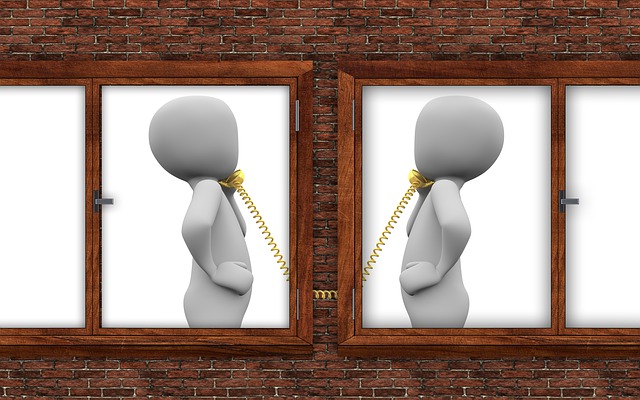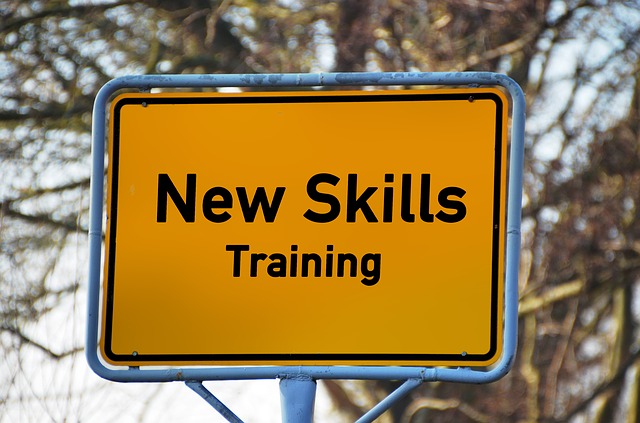
Welcome to Part 4 of ‘Becoming a Behaviour Change Expert’.
In this series I am looking at the different skills and techniques that you can use if you want to make changes in your life. Changes like getting more exercise, meditating regularly, eating better, being more productive and looking after your general wellbeing.
I was inspired to write this series after realising that most of us want to make significant changes in our lives, but have never been specifically taught how to do it.
In Part 1, I looked at how to set goals, that is, how to plan your behaviour change.
In Part 2, I looked at how to monitor your progress towards your goals.
In Part 3, I looked at how you can use the support of other people to help you make a change.
In this post (Part 4), I explore the importance of learning as much as you can about the behaviour you want to change so you are mentally and practically prepared for and confident you can make the change.
Do you think you can carry out the behaviour?
Some lifestyle changes are conceptually easy to wrap your head around. For example, if you wanted to go for a 10-minute walk each day, you probably wouldn’t need someone to show you how to do it.
But other lifestyle changes are more complex.
Say you decided you wanted to ‘eat healthier’. What does ‘eat healthier’ actually mean? In reality it could mean quite a few things: eat less saturated fat, eat less sugar, eat more vegetables, eat more whole grains etc.
Before being able to make this lifestyle change, you would need to clarify exactly what the change involves, as well as understand how you would make it come true in your own life. Clarifying exactly what changes you want to make is also necessary in order for you to self-evaluate your progress towards making the changes.
Some of this process was covered in Part 1, where I talked about making specific goals; turning nebulous desires into specific actionable tasks.
But it is more than just setting goals. It is about feeling competent to be able to physically (or mentally) carry out the desired change. This confidence to carry out a behaviour is called self-efficacy.
Self-efficacy
Self-efficacy is the belief in one’s ability to carry out a particular behaviour in order to achieve a particular outcome.
If I have self-efficacy in relation to my diet, then it means I am confident in my ability to be able to make meaningful changes to my diet in order to be healthier.
Building self-efficacy in the area of your life that you wish to change involves a few steps.

-
Tell yourself that you can do it.
Simply telling yourself you can do something doesn’t make it true, but telling yourself that you will be able to do it, increases the likelihood that you will even try. I might not be able to code a website from scratch, but if I tell myself that it is possible to learn how to do it, then I am more likely to give it a go.
The idea is not to falsely inflate your abilities, but to keep an open mind as to your ability to learn a new skill.

-
Acknowledge any fears or uncertainties that you might have about making the change.
When taking on a difficult life change it is normal to feel anxious or uncertain about it. We might fear getting it wrong or failing and looking like a fool. We might anticipate the change being difficult to make which fills us with dread or a pre-emptive fatigue. We might be embarrassed that we haven’t yet made the change.
Lots of different emotions and thoughts can show up when we are trying to make important changes in our lives that can discourage us from making these changes. They can be very convincing in their arguments as to why we should not make the change.
The art of being able to notice and name emotions/thoughts as they show up and questioning their helpfulness is a good skill to develop. Try noticing what emotions and thoughts show up when you consider making a healthy lifestyle change. For me it is usually some combination of the following:
- I don’t have time for this
- I already have so many things I am trying to do
- That won’t work
- I can’t make that change – it’s too hard
- What’s the point?
It can be hard at first to resist these discouraging thoughts, but keep this simple idea in mind to help.
Your mind will give you lots of reasons and explanations about why you shouldn’t make the change, or why you can’t make the change. Some of these will have a grain of truth to them. Many will not. Do not assume that what your mind tells you about your ability to make changes is accurate.

-
Read and learn about the thing you are trying to change.
It is highly likely that if you are trying to make a significant life change, that you will need to learn more before doing it successfully. It is absolutely OK to admit that you don’t know enough about making the change and need to learn more.
Thankfully the digital age puts an incredible amount of information at your fingertips.
If you want to learn how to meditate, or do a deadlift, or use a nicotine patch, or cook nicer food, or any number of positive lifestyle changes, you can simply Google it, and you will find a wealth of information on the topic. There are articles, blogs, online courses, MOOCs, videos, podcasts, ebooks, mobile apps and more, all focused on teaching you skills, across every domain of life.
This is both amazing and frustrating at the same time.
Amazing because I’ve known people who learned how to service their car or renovate their house by watching YouTube.
Frustrating, because sometimes there is so much information that it is overwhelming. People don’t know where to start. It gets even harder if some of the information is contradictory.
If you are overwhelmed by the idea of trying to find the information yourself, consider talking to an expert. If you are wanting to change your diet, talk to a dietician. If you want to change your behaviour, talk to a psychologist. If you want to get fitter, talk to a personal trainer. Find a ‘subject matter expert’ who can help simplify the change for you.
One of the big reasons to educate yourself about the change you are trying to make is that doing so will probably challenge some existing ideas you have about why you haven’t made the change already.
For example, you might have spent years telling yourself the reason you don’t exercise is because you are ‘lazy’, but having done more research, you might learn it was more to do with not managing your time well.
Learning about the changes you want to make can help challenge out-of-date narratives we have been telling ourselves about why we haven’t changed.

-
Break down the change into workable chunks.
If you are looking at making a significant lifestyle change (e.g. a diet overhaul), you might want to break it down into manageable chunks first. For example, you might start by adding 1 piece of fruit to your diet every day. Then build on that by adding extra vegetables to your dinner.
This is based on the simple (and intuitive) idea that you will feel more confident and capable of making a series of small simple changes than you would make a big complex change. You can still aim for a very big changes, but just break them up into more achievable chunks first.
The other benefit of this approach is you can get some early successes and the feelings of achievement that go with this. Celebrating each step towards a big goal makes the big goal seem even more enticing.

-
Talk to other people that have made similar changes.
One effective way to build confidence and self-efficacy in relation to significant lifestyle changes is to talk to and observe people who have already made similar changes in their lives.
Again, thanks to the information age, the stories of other people who have successfully changed their lives are easily accessible through blogs, books, online communities (e.g. www.patientslikeme.com), video sites like YouTube and social media.
The reality is you probably already know someone who has made a similar change in their life. Perhaps a family member or friend changed what they eat, or started exercising regularly.
When talking to them, find out what tools they used. Find out how they structured the rest of their lives so that they could make the change. Try to really hone in on the routines and structures they set up that helped them succeed.

-
Practice, review, and repeat.
The most powerful way to build self-efficacy is to practice the behaviour in question. So if your goal is to go to the gym regularly – sign-up and try going 2 or 3 times per week.
Don’t worry if you aren’t successful at first. Those people who acknowledge failure and then try again are more likely to build a broader sense of self-efficacy because they clearly connect success with effort and resilience.
It is why we strongly encourage those who have tried to quit smoking but failed, to try again, cause we know the repeated practice and problem-solving that goes with trying again is what predicts whether they will ultimately be able to give up.
Combined with the other steps described above, practice is your most powerful tool in making lasting lifestyle changes.
Takeaway message
Considering a big lifestyle change?
Take the time to educate yourself on what it is you are going to change. You can do this by yourself, with the help of an expert, or by talking to or observing someone else who has already made the change.
Take that knowledge and use it to break the change in smaller chunks and launch yourself into the first of those smaller changes. Treat your early efforts as ‘practice’. If things don’t work out – stop and reflect on what happened, update your knowledge and then try again.
Done well, this helps you build both knowledge and confidence (self-efficacy) that will benefit you beyond the specific change itself. It will give you a method for making lasting and important changes in your life, that you can share with others.

